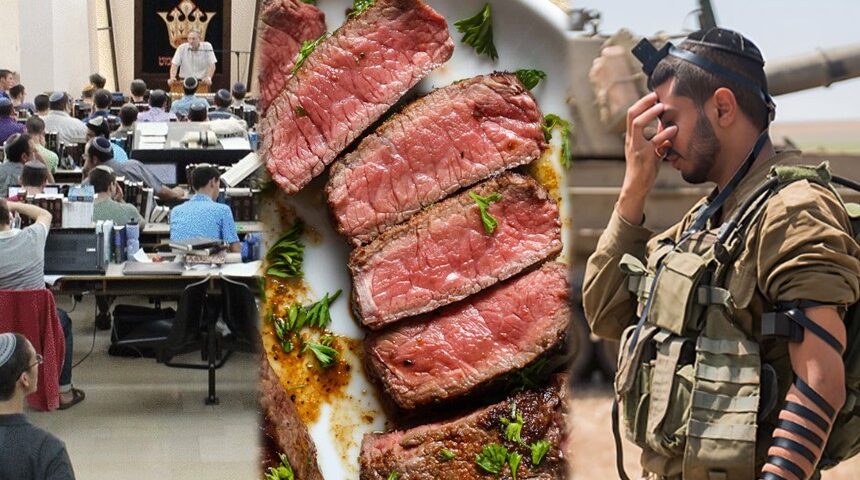TRADITION QUESTIONS: Yeshiva Week at War

 Click here to read about this series.
Click here to read about this series.
What is it?
Jewish day schools and yeshivas give a week-plus vacation in late January. This North American phenomenon is colloquially known as “Yeshiva Week.” Despite taking place three weeks after most Americans’ winter holiday, it normalizes the leisure-culture of general society within modern Torah education. Halakha has responded to this phenomenon with Kashrut agencies publishing guides for vacation rentals, scholars discussing navigating Shabbat and kosher dining on cruise ships, and rabbis issuing instructions on interpersonal etiquette for communities that welcome vacationers and the vacationers themselves. Less has been written on the ever more exotic and lavish destinations and the consequences of conspicuous consumption on the religious norms of our communities. [Although we look forward to TRADITION’s upcoming Spring 2024 issue dedicated to this topic.]
Why does it matter?
A mid-winter off-week does not exist in any traditional Jewish education system. Cultivating a subculture in which Judaism and Americanism contributed one to the other, Jewish day schools and yeshivas adopted winter intersession. It was an opportunity to differentiate from general society’s December break while furthering a vision of American Jewish families happily consuming the best America (and foreign vacation destinations) had to offer in snow and sun.
In his 1952 classic Leisure: The Basis of Culture, Joseph Pieper argues that leisure is an attitude of the mind and a condition of the soul that fosters the capacity to create culture. Much like Shabbat, an “ability for non-activity” allows people to escape a “bourgeois world of total labor.” The intensity of American work culture might demand recreation—beyond religious holidays, which are spiritually recharging but rarely “leisurely”—that our Jewish schools are right to encourage. Yet, like Pieper, we must ask whether those holidays create hectic amusements or rest and rejuvenation.
In an essay discussing “Glatt Kosher Hedonism” (By His Light, 15), R. Aharon Lichtenstein zt”l sees values debasement when leisure assumes priority over a life-mission. Rasing an alarm, he distinguishes between a self-perception or “being born to enjoy” as compared to living “to work.” This problem is especially acute when reflecting upon divisions between Israel and the diaspora. Material success has bridged some of the experiential gap between Jews in Western countries and those in Israel. Yet, with the ongoing war and its full call-up of Israel’s reserves for the first time in generations, the spiritual threat of Moshe’s argument to the children of Reuven and Gad cries out, “Are your brothers to go to war while you stay here” (and ski)? (Numbers 32:6). How must this fun and leisure period adapt to the ongoing war in Gaza?
During this time, Israel has sought to create as much normalcy as possible. When soldiers return from battle, they want to see the healthy and vibrant society for which they fight. To be overcome by sadness is to grant our enemies an unnecessary psychological victory. Yet, we have lost so much. A proposed Eilat advertising campaign for the domestic market would encourage Israelis to “take the air” but not “vacation,” because Israelis don’t want to feel guilty enjoying themselves during a war. What about Jews around the world?
What questions remain?
What practical changes will the war force on North American Jewry and its Yeshiva week?
Is it possible for American Jews to prioritize rehabilitation over celebration and somehow constructively change the culture of Yeshiva Week?
Will American Jews “take the air” and not “take the pictures” and flaunt them online before their Israeli friends and family?
Will American Jews say Tehillim and the prayer for the IDF at the five-star resort’s minyanim? What will that mean?
If Yeshiva Week does not change, what effect will that have on the relationship between Jews of Israel and those of North America?
Chaim Strauchler, an associate editor of TRADITION, is rabbi of Cong. Rinat Yisrael in Teaneck.
